Today, Mr Zivorad Vasic is IHG Regional General Manager and manages Crowne Plaza Belgrade, InterContinental Bucharest, Hotel Indigo Belgrade (opening soon), InterContinental Ljubljana, Regent Porto Montenegro and InterContinental Sofia.
He started his career in the hospitality industry in America. He brought the know-how he acquired there back to Serbia and for 10 years has been successfully implementing it in the work he does. He points out how proud he is of overcoming many obstacles and choices he made. Today, he is trying to give a chance to young people and he therefore carefully observes his team members and identifies where their strengths lie.
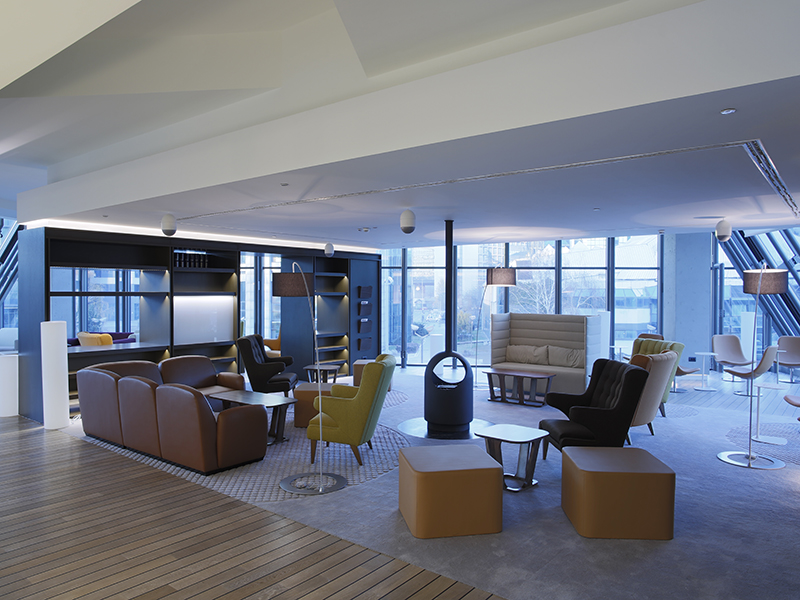
In addition to the enviable level of education you got, what do you feel helped you 10 years ago in Serbia when you first started your career and also helped you establish yourself as one of hospitality industry leaders in the region?
There are many things that contributed to my success. First of all, there’s work and education, then, I was lucky and what comes in third is the good timing of my return to Belgrade. Back then, the hospitality industry, with new foreign brands, was still in early stages and accordingly there weren’t many people who had an innovative approach to this branch of industry. There weren’t enough educational institutions, schools and universities, which would allow students to acquire necessary skills as is the case today, when besides studying they can also get practical training, which is enormously important for any real expert. I’d say that it was the education that helped me the most on my professional journey, then practice but also social intelligence which is good ʺpointerʺ for decision making. I was 30 when I became Manager of the Continental, the biggest hotel in the region at the time. Since the hotel’s occupancy was far from satisfactory, I organized a meeting with the employees and had a talk with them. I asked them if they thought it was better for them to have two occupied rooms at a higher rate or eight occupied rooms at a lower rate. I can tell you that the conclusion we reached then helped me understand why Genex, which once was a large and serious company, collapsed. People wanted to work less, not more. I had come from a regulated system in America, where I advanced step by step and so I gave myself a period of one year to see how I would do on this market. At the time, the Delta company acquired the Continental and basically that’s when my professional development in Serbia started. Back to your question, I will tell you an anecdote which is an excellent illustration of the combination of components I mentioned. I’d known Mr Miskovic by reputation only, as the CEO of the company. Other managers from the company told me that if I did my job properly, my work would for sure be recognized. But despite this, I knew that there was a door I needed to open myself because there was no one else to do it instead of me. He regularly went to hairdresser’s at the Sava Centre’s gangway and I saw that he went there every three weeks. I decided that I would wait for him every time he went there because I knew I had just those 45 seconds when he went up the stairs leading to the parlor and another 45 second when he was on his way down. This was when I spoke to him. And he did indeed recognize in me the desire to develop, learn and make a difference.
The average rates in Ljubljana and Zagreb are significantly higher compared with Belgrade. A part of the problem is that there are too many hotels in our capital and it is only natural that occupancy is not very high, especially on Fridays, Saturdays and Sundays. The other part of the problem is that we do not appreciate ourselves as much as we should.
A decade ago, you were one of the first people in the hospitality business to introduce the ʺValue for Moneyʺ business philosophy. You impacted market changes, you made other people in the industry fight harder for their guests. Are rates in Belgrade today lower compared with the region?
The average rates in Ljubljana and Zagreb are significantly higher compared with Belgrade. A part of the problem is that there are too many hotels in our capital and it is only natural that occupancy is not very high, especially on Fridays, Saturdays and Sundays. The other part of the problem is that we do not appreciate ourselves as much as we should. If all of us join forces and start holding our market in higher regard, we’ll create higher rates. If we do things in this way, and I repeat, we jointly and in a synchronized manner increase rates, within three to four years our rates can be as high as they are in the capitals of Slovenia and Croatia.
How important are role models? Do you think that in your case they provided guidance on your professional journey?
But of course! Throughout my career I have had role models and so, yes, I do think they are very important. I am proud to say that over time the number of these people is getting higher. At first, my role models were my father, who used to tell me that I should always do my best, whatever I did, and my uncle, who made it possible for me to get my education. Later, I met Mr Michael Hickey, General Manager of the Hyatt in Boston, where I worked at the time. I remember that when he promoted me to the Operations Manager, I came to the meeting wearing a black shirt and orange tie. He congratulated me and took me to his office, gave me some money and told me to buy new, white shirts. He taught me that a white shirt will always give you a professional look and I still use that simple trick today. When I came back to Belgrade, I had the privilege of meeting Mr Miskovic and working with the man who introduced really major changes in Serbia. I have learnt a lot from him, not only about business but also how to build personality by acquiring new knowledge. Because what you learn while getting regular education is never enough. Every day is a possibility to learn something new because, as he says, the man’s value is measured by how much he/she knows and basically that’s something no one can take away from you. One of the important things my role models told me was that it is very important to always be determined when taking decisions. If there is a problem, I do whatever I can to solve it as soon as possible. Of course, sometimes there are situations you need to think through, discuss, ask for advice, wait for a while but that too needs to be efficient. Perhaps this is why ʺsleep on itʺ has a somewhat different meaning for me. This certainly does not mean that I make decision hastily but let’s just say that I have developed various mechanisms to make them more promptly. As for female role models, they’re my mother and my wife. To cut the story short, what matters is that your role models push you to want more and reach higher.
The Indigo will be ready for soft opening between May and June next year. The hotel will be telling a “neighborhood story”, rooms will be decorated with details resembling that part of Dorcol, every room will be furnished differently and the entire concept of this hotel will be far from the corporate concept. For example, all items in the minibar will be free of charge.
Is there something that you believe is specific for Serbian hospitality industry today?
What I have noticed in certain sectors in Serbia, especially in Sales in Marketing, which in my opinion are among the most important in this industry, is that we always see the same people around. I don’t think this is good and I strive to change this. And now I’ll explain how. In our Sales Department, in a team of 15 people there is a manager who used to be a waitress in our New Bar, manager who was a receptionist, manager who worked in the restaurant, manager who wanted to be an actor… We have literally developed these staff members and all of them are excellent at their jobs. We were not afraid to embrace differences, if I may say so. Managers in Serbia reluctantly give chances to people who’ve never done a certain job. For example, this is something I haven’t noticed anywhere else but here.
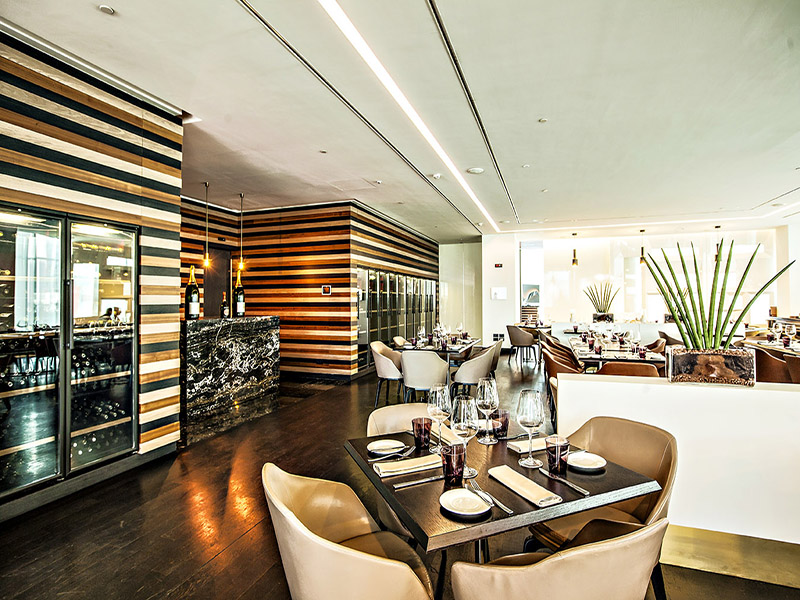
Another thing that is Serbia specific is a result of us not being part of the EU. Belgrade, as opposed to other capitals in the region, has by far the highest number of hotels and foreign hotel chains. This is why people who work here in the hospitality industry find it very hard to leave Serbia and find work in the region because work permit is hard to obtain abroad so they are actually forced to work here for employers who offer higher salaries. This brings us back to what I already noted, that we always see the same people around. They do get higher salaries, they are sought after, but young people have to be given opportunities again and we need to put our trust in them. This is what I call injustice. I believe that the job of a good team leader, or any person holding a higher position within a sector, is to observe and recognize people’s talent and likes and in this manner open new windows of opportunity for young people with potential. I deeply believe in in-house promotion.
The opening of the Indigo in Belgrade is long-awaited. When do you expect that you’ll be able to welcome the hotel’s first guests?
The Indigo will be a truly special hotel, its location is Knez Mihailova Street. Construction works are going as planned. I think it’ll be ready for soft opening between May and June next year. The hotel will be telling a ʺneighbourhood storyʺ, rooms will be decorated with details resembling that part of Dorcol, every room will be furnished differently and the entire concept of this hotel will be far from the corporate concept. For example, all items in the minibar will be free of charge. What do I mean by this? First of all, atmosphere will be laid back, waiting staff’s uniforms will be jeans, shirts and sports shoes, they’ll be allowed to wear beards/piercings/tattoos. The rooftop restaurant will overlook the entire city and we will serve there something we named ʺSerbian tapasʺ, and there will also be a gin bar. Target group for the Indigo are hedonists who work in the city center and who want to spend time in laid-back atmosphere.
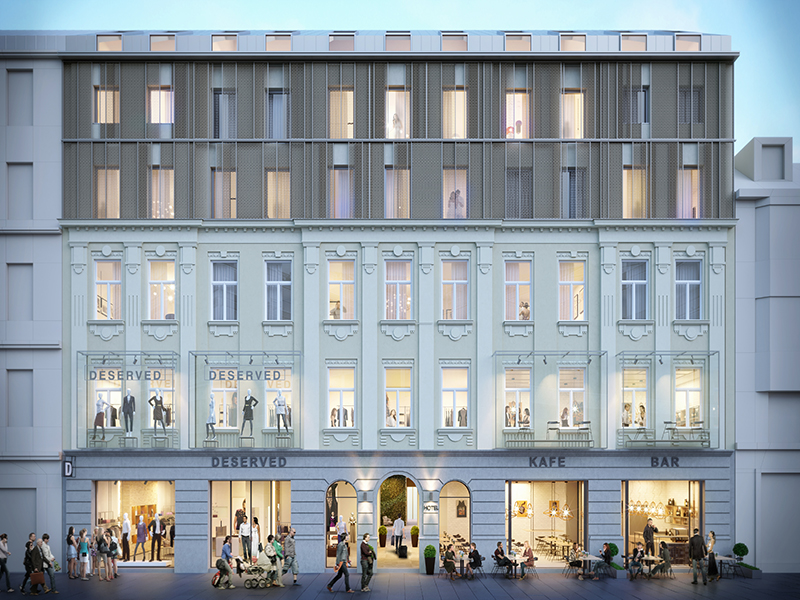
With the opening of the Intercontinental in Ljubljana, Delta Holding demonstrated how serious it was in terms of expanding into the regional market. What are the next steps in that sense?
We’re building Holiday Inn in Ljubljana in March next year, and that is an investment of EUR 25 million. We’re looking for suitable location in Zagreb because we want to be present in Ljubljana, Zagreb and Belgrade. We’re close to reaching agreement about the construction of a hotel in Skoplje, which has become an interesting market for us. As for Montenegro’s coastline, we are not interested in this destination because of seasonality and there’s already a sufficient number of hotels in Podgorica.
We’re building Holiday Inn in Ljubljana in March next year, and that is an investment of EUR 25 million.
The Sava Congress Center in Belgrade is a ʺthorn in the sideʺ as regards major international congresses and for years, if not decades, and the disproportion between the quality offered by hotels and the Center has been far too obvious. On the other hand, Delta has been releasing information about prospective private-public partnership with the City regarding the Sava Center renovations. Can you see this problem being solved within the next two years?
By the end of the year, the City of Belgrade should invite a tender for the sale of the Save Congress Centre. If this happens, the Delta company will bid because we’re very interested in investing more than EUR 70 million in this project and we want to turn it into state-of-the-art and premium quality congress centre. This much money and plenty of knowledge can be invested only by a large and successful company such as Delta. We want to refurbish it and make it the best congress centre in the Balkans.






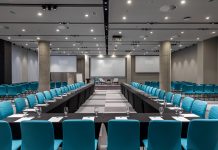
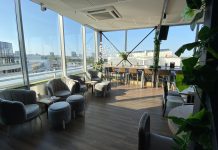













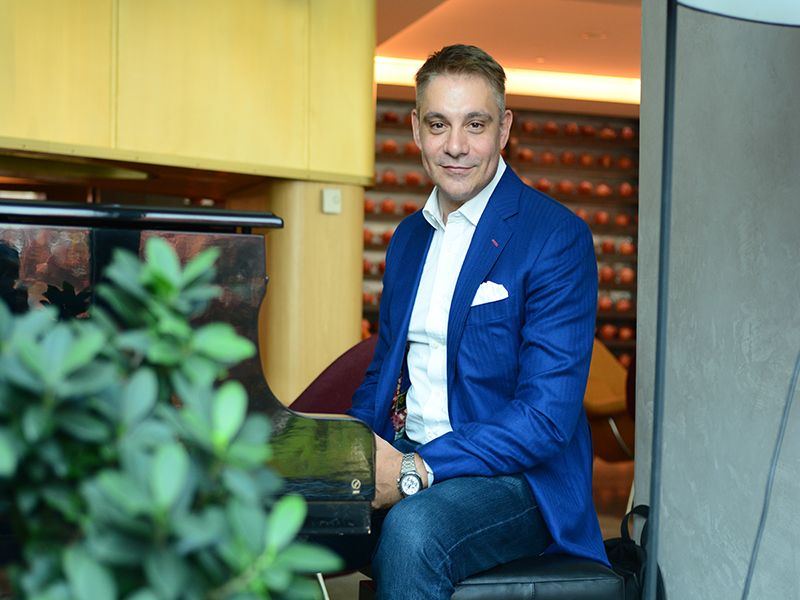














 Srpski
Srpski English
English